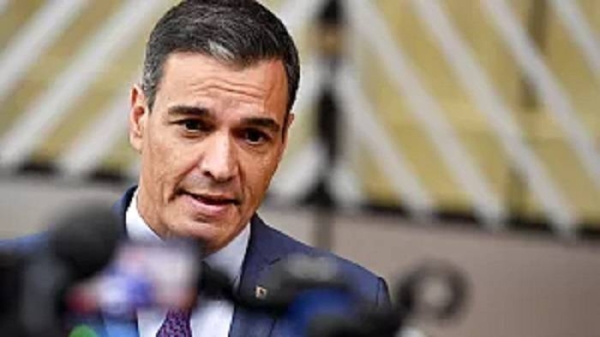
Israeli Prime Minister Benjamin Netanyahu was last week able to save his right-wing ruling coalition by the skin of his teeth following a tumultuous few days, which saw a breakout of violence in Gaza followed by a tense truce that resulted in the resignation of Defense Minister Avigdor Lieberman in protest. The departure of Lieberman’s Yisrael Beiteinu party left Netanyahu with a one-seat majority in the 120-seat Knesset.
The ensuing crisis prompted Netanyahu’s far-right partner and potential rival, Education Minister Naftali Bennett, who is the leader of the Habayit Hayehudi party, to issue an ultimatum: Either give him the coveted defense portfolio or he would withdraw from the government, thus forcing a snap general election. Over the weekend it appeared that Israel was indeed heading toward an early election, but a seasoned Netanyahu rejected Bennett’s demand and took over the defense ministry himself. Furthermore, he appealed to the Israeli public by saying that early elections would be “a historic mistake” that would repeat the “disasters” of Oslo and the Second Intifada.
By Monday, it seemed that Netanyahu’s gambit had worked. In a joint press conference, Bennett and party colleague Ayelet Shaked, the justice minister, announced that they would remain in government, but not before slamming the prime minister’s security policy, most notably over Gaza.
A week is a long time in Israeli politics and Netanyahu, who is leading his fourth coalition government, knows how to maneuver out of trouble. His partners are also his main political opponents, since Israeli voters are veering to the right, thus denying center and leftist parties a chance to challenge the Likud leader. Polls have been consistent in showing that, if elections are held, Netanyahu would most likely emerge as the winner. But elections, early or otherwise, would bring new players to the political scene — small far-right and religious parties that he would need to form a governing coalition.
It is the post-election period — one of blackmail and arm wrestling — that would prove hectic for Netanyahu. He would therefore prefer to wait until next November, but he also knows that maintaining a one-seat majority will prove difficult. At best, he would like to keep his governing coalition in power for a few more weeks; preferably until the end of the year. Why? The Gaza debacle has eroded his popularity and that of his partners.
While Netanyahu was in Paris attending the armistice commemorations, Lieberman authorized a commando operation into Gaza apparently to kidnap a leading Hamas military commander. The operation took place a day after Hamas and Israel had begun implementing a short-term truce deal that allowed Qatari funds and oil to enter the beleaguered Gaza Strip. Egypt had been mediating between the two sides for months and, by Nov. 11, it appeared that a deal had been reached. So it was strange that Israel would carry out a commando operation, which went all wrong, in the wake of the truce. As a result, a senior Israeli officer was killed as well as a number of Hamas fighters.
Netanyahu, who is leading his fourth coalition government, knows how to maneuver out of trouble.
Osama Al Sharif
The reaction was extreme from both sides. Israeli jets bombed Hamas and Islamic Jihad targets and, in an unusual response, the military wings of both rained hundreds of rockets on neighboring Israeli towns and settlements. At one point, Hamas launched a guided missile that destroyed an Israeli bus close to the border. Moreover, a missile was fired at the strategic port city of Ashkelon, killing one civilian. Hamas’ leader in Gaza, Yahya Sinwar, warned Israel not to test the resistance group again, adding that Tel Aviv would be the next target. It was the most serious confrontation since Israel’s war on Gaza in 2014.
Last-minute interventions by Egypt and Qatar, and Netanyahu’s decision not to let the crisis escalate, succeeded in restoring quiet. But the crisis claimed its first political victim: Lieberman, whose hopes of replacing Netanyahu have all but collapsed. Thousands of Israelis from areas near Gaza demonstrated against the government for failing to contain Hamas and Netanyahu understood the danger of linking early elections to waging war on the Strip.
The possibility of snap elections, which could take place in March or April next year, may claim another casualty: Donald Trump’s regional peace plan. According to various reports, the US president will be briefed on the details of the plan within days by his son-in-law Jared Kushner in preparation for a possible unveiling before the end of the year. In reality, Netanyahu and his far-right partners are not in a hurry to deal with the controversial plan.
But, while the Israeli government is safe for now, Netanyahu may still choose to call for snap elections once he decides that the time is ripe. By doing so, he may be trying to avoid possible indictment on corruption charges and extend his political chances, while forcing Trump to put his plan on hold.
Osama Al Sharif is a journalist and political commentator based in Amman. Twitter: @plato010
Disclaimer: Views expressed by writers in this section are their own and do not necessarily reflect Arab News" point-of-view












